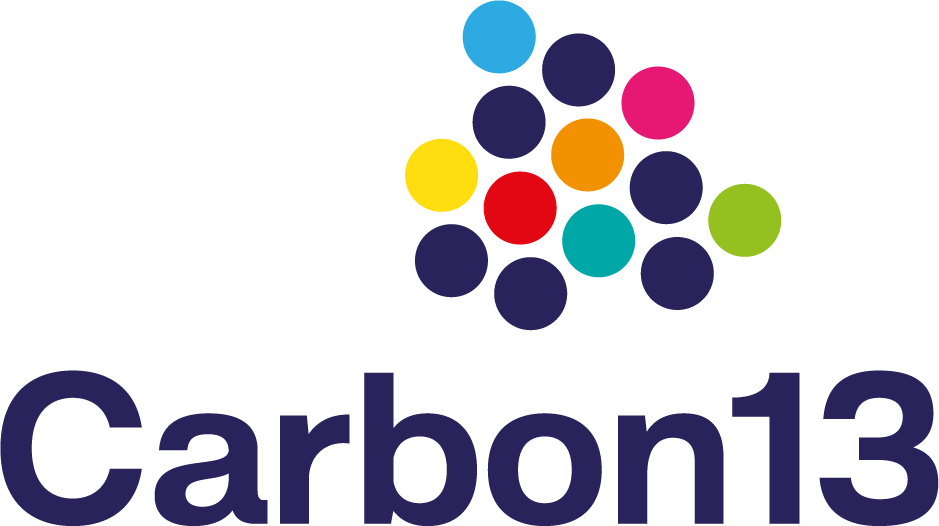"a blend of adaptability, eagerness to learn, and a commitment to the broader mission of climate impact."
What are Entrepreneurs in Residence and how do they support?
Entrepreneurs in Residence (EIRs) are our closest circle of supporters. From Phase 2 onwards, they are mentors and sparring partners for our teams and bring a wealth of experience from entrepreneurship and technical understanding. We would like to introduce you to our EIRs.
Would you briefly introduce yourself and highlight what kind of expertise and support the teams can expect from you?
I am Amrit Singh Chandan, a passionate entrepreneur and leader with a PhD in Chemical Engineering. My journey includes co-founding Aceleron, where I led innovations in sustainable energy, significantly impacting environmental challenges. With experience in raising capital, strategic partnerships, and mentoring, I bring expertise in driving positive societal change. As a collaborator, teams can expect from me a blend of strategic insight, operational excellence, and a commitment to creating impactful solutions, all delivered with an open, authentic, and enjoyable approach.
What made you join Carbon13’s mission to fight the climate emergency by supporting climatetech projects?
Joining Carbon13’s mission was a natural step for me, aligning perfectly with my life’s mission to create substantial positive change for our planet. With my background in sustainable energy and my aspiration to significantly reduce global CO2 emissions, supporting climatetech projects through Carbon13 allows me to leverage my expertise and network to combat the climate emergency actively. This platform not only enables me to contribute to developing innovative solutions but also aligns with my goals of impacting over 100 million people and driving a major reduction (>1Gt CO2e) in CO2 emissions, fulfilling both my professional ambitions and personal values.

What is the difference when it comes to supporting and working with climatetech founders, compared to other founders?
Supporting climatetech founders differs from other founders due to the unique challenges and opportunities in the climate sector. Climatetech founders often navigate complex regulatory environments and longer development cycles, as their innovations may involve new technologies or require substantial shifts in market infrastructure. The stakes are higher, given the urgent need to address climate change. Therefore, they require a deep understanding of both the environmental impact and the scientific underpinnings of their solutions. As an Entrepreneur-in-Residence, I focus on aligning their vision with sustainable business models, securing patient capital, and leveraging cross-sector collaborations. The goal is not just commercial success but also achieving significant environmental impact, making the support for these founders a blend of strategic business advice and a deep commitment to sustainable change.
Carbon13 is about building sustainable startups and also about building strong teams who can support each other throughout the challenging journey. Are there any examples of teams whose treatment of each other has impressed you and that others could learn from?
The startup journey is definitely a challenging one and having the right team can make all of the difference. VoltVogel stands out as a prime example of a team that embodies the spirit of collaboration and mutual support, which are key to success in the climatetech space. Their approach, marked by high levels of self-awareness and empathy, has been impressive and instructional. They’ve shown a keen ability to navigate the intricacies of startup development while maintaining a strong, unified vision towards making a significant environmental impact. This level of understanding and cooperation within the team has facilitated their progress and resilience through the challenges of the startup journey. Their example serves as a testament to the power of a cohesive team that is deeply aligned not only in their business objectives but also in their commitment to positive change. This reflects the ethos we foster at Carbon13, where building sustainable startups is as much about innovative solutions as it is about cultivating strong, supportive teams.
Building a start-up is a rollercoaster ride with many ups and downs. What tips do you have for founders to cope with this?
Navigating the startup journey, indeed a rollercoaster ride, requires resilience and a strategic approach to well-being and resource management. Here are some tips that I picked up on my own journey for founders to cope with the inherent ups and downs:
1. Build a Peer-to-Peer Network. Connect with fellow entrepreneurs to share experiences, challenges, and insights. This network serves as a valuable support system, providing different perspectives and potential solutions to common problems.
2. Don’t Be Afraid to Ask for Help. Acknowledge that you don’t have all the answers and leverage your network. Seeking advice or assistance can provide new strategies for managing your business and personal challenges effectively.
3. Surround Yourself with Great People. Your team’s quality can make a significant difference. Having a group of talented, motivated, and supportive individuals around you can enhance your ability to navigate the startup’s highs and lows.
4. Take a Walk. Never underestimate the power of stepping away to clear your mind. A simple walk can help reduce stress, improve mental health, and spark creativity, providing fresh perspectives on pressing issues.
5. Reflect and Develop Your Introspection Skills. Regular reflection can enhance your understanding of personal and business growth. Developing introspection helps in making informed decisions, learning from experiences, and planning more effectively for the future.
Why do you think that Carbon13 is a good place to start a successful climatetech venture?
In a few words – creating a selective community of driven founders who want to change the world for the better!
Carbon13 is an ideal incubator for successful climatetech ventures due to its comprehensive support system, tailored specifically for the unique challenges of the climate technology sector. The program not only offers access to funding and resources but also brings together a diverse community of experts, mentors, and peers. This network fosters collaboration and innovation, enabling founders to refine their ideas and scale their solutions effectively.
I wish when I started on my journey that Carbon13 had existed – it fills a critical gap!
What do you think participants need to bring in order to be successful?
To be successful in Carbon13, participants need a blend of adaptability, eagerness to learn, and a commitment to the broader mission of climate impact. The ability to pivot is crucial; founders must be prepared to adjust their strategies in response to feedback, market changes, or new discoveries. Listening is equally important, as it allows for the assimilation of diverse perspectives and expert insights, enhancing the venture’s development and relevance. Learning is a continuous journey in the climatetech space, where rapid advancements and shifting paradigms are the norms.
Moreover, a genuine desire to contribute to the environmental cause, beyond immediate personal gains, is essential. This altruistic drive fuels perseverance and long-term vision, which are key to overcoming the inevitable challenges of startup life. High emotional intelligence and self-awareness enable founders to navigate the complexities of team dynamics, investor relations, and customer engagement effectively. These qualities foster a resilient, reflective, and responsive approach, setting the stage for meaningful and sustainable success in the climatetech ecosystem.
What is a current technology that excites you and that you believe has a lot of potential for saving or reducing emissions?
Generative AI holds immense potential in optimizing resource usage and reducing waste, which is crucial for lowering emissions. By analyzing vast datasets, generative AI can identify patterns and efficiencies that humans might overlook, leading to more sustainable practices in industries like manufacturing, energy, and transportation. For example, it can optimize supply chains to reduce carbon footprints, enhance energy efficiency in buildings and cities, and even improve the design of renewable energy systems to maximize output and minimize waste. Energy storage, on the other hand, is a critical component in the transition to renewable energy. It addresses the intermittency of sources like solar and wind, ensuring a stable and reliable energy supply regardless of weather conditions.
This capability is essential for reducing reliance on fossil fuels and enabling a more flexible and resilient energy grid. The excitement in this field comes from the complex interplay of different technologies, each with its strengths and limitations. There is no single solution to the climate crisis, but rather a mosaic of technologies that must be intelligently integrated. This complexity presents a fascinating challenge: piecing together the “imperfect parts” to create effective solutions to our most pressing environmental problems. The journey of discovering and combining these technologies, like generative AI and energy storage, in innovative ways is not just necessary for our survival but is also an intellectually and creatively stimulating endeavor.
